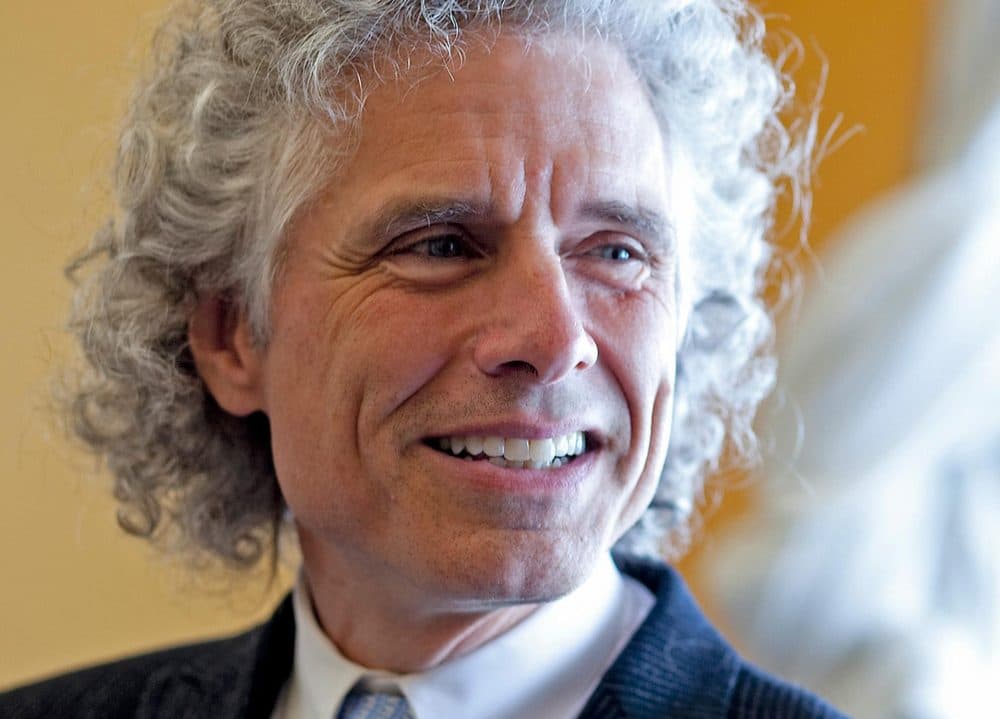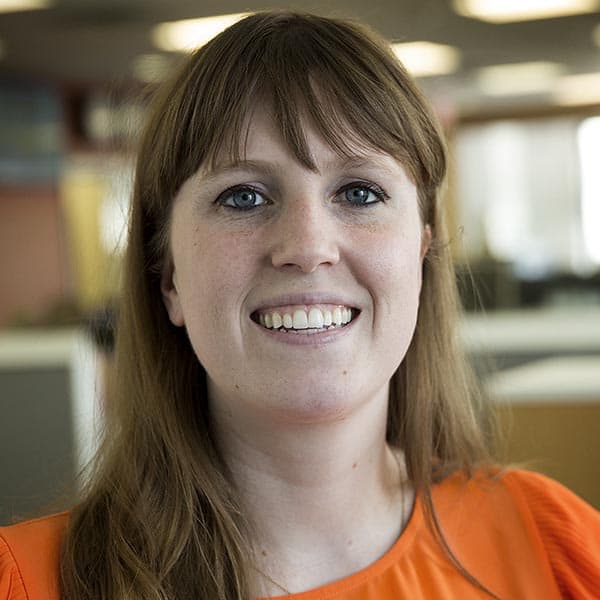Advertisement
Steven Pinker On Why Humanity Has Never Had It Better

It's easy to be a pessimist about the state of affairs in the United States. But Steven Pinker, a psychologist and Harvard professor, remains optimistic about the future. He argues that humanity has never had it so good and, when you look at what the data say about the human condition, you'll see that health, prosperity, peace and happiness are all on the rise around the world.
He credits these gains to the values of the Enlightenment and argues that science and reason deserve a most vigorous defense.
Guest
Steven Pinker, psychologist and Harvard professor. His latest book is "Enlightenment Now: The Case for Reason, Science, Humanism, and Progress." He tweets @sapinker.
Interview Highlights
On the evidence that we should be optimistic about the human condition
Let's start with life itself. For most of human history life expectancy at birth was in the neighborhood of 30 years. Now it's 71 years worldwide. More than 80 years in the developed world. And all the figures are rising all over the world. Education for most of European history, maybe 15 percent of the population could read. Right now, 80 percent of the world is literate and 90 percent of the world under the age of 25. Peace with the signing of the peace agreement between the FARC guerillas and the government of Colombia. The last war in the Western Hemisphere came to an end. And the last remnant of the Cold War. So 5/6ths of the world's surface is at peace and the rate of death and warfare even with the horrific civil war in Syria — which is the worst war in a generation — the rate of death and warfare is much less than it was in the 80s, the 70s, the 60s.
On if human progress is inevitable
I don't believe in any dialectic or in any arc of justice or cosmic force that takes us ever upward. There's a reason that I attributed the progress to the Enlightenment. Namely, there were certain really good ideas and namely that if we try to understand the world through science and reason, if we set ourselves the goal of improving the human condition, we bit by bit succeed — we can solve problems. But it's problem solving, not any arc of improvement, to which we owe progress that has been achieved.
On relative assessments of our condition vs. a more 'global thesis'
Two things: they're both relevant. We should appreciate the fact that global poverty has been plummeting. And as a result, global inequality has been decreasing because poor countries have been getting richer faster than rich countries have been getting richer. So although inequality within wealthy countries has been increasing, inequality across the globe has been decreasing. Fewer people are starving to death. Fewer people are doing without the basic necessities and pleasures of life.
Now it's true that inequality within rich countries has been increasing, but we shouldn't confuse that with poverty increasing. And where poverty is measured in terms of what people can afford to buy, when it's measured after social transfers — earned income tax credits, Social Security, Temporary Assistance for Needy Families --then the rate of poverty has gone down. People forget how much poverty there was in the 1950s and 1960s. And we had books like "The Other America" that called poverty a scandal or national crime because a majority of elderly people were poor. Huge numbers of people had no access to medical care whatsoever, before there was Medicaid and Medicare and now Obamacare.
I do think that the drumbeat of negativity from the right and the left fed into the campaign of our current President — Donald J. Trump had a relentless campaign message that the country was deteriorating in every possible way, and he didn't get too many people on the left saying, well wait a second, actually, people used to be much worse off in terms of racial discrimination, in terms of poverty in terms of medical care, in terms of being drafted to go to war, in terms of being victims of crime. And so many journalists and intellectuals join in the chorus of cultural pessimism, that it opens the door to someone to say, well, only I can fix it, or we've got to drain the swamp, we've got to burn the empire to the ground. There's no reforming society given how it's spiraling downward. Therefore, we need a radical raising of institutions and empowering a charismatic leader.
On pushback from other public thinkers
Progress driven by Enlightenment ideals can't affect everyone everywhere all the time. I mean that would be magic. That would not be progress. And there are local setbacks. It's not white people in general whose mortality has decreased, but less educated, more rural, baby boomer males, in particular, have seen a slight decline in life expectancy largely because of the opioid epidemic.
But it would be naive to think that progress means that there are never going to ever be any problems forever going forward. This is a problem that was not anticipated — the opioid epidemic — it will be dealt with, but it's not a refutation of the Enlightenment that we get surprised by negative happenings. They always will happen. Solutions bring new problems in turn. I think it's kind of a cheap journalistic trick to scan the headlines for all the worst things happening everywhere in the world and say, see, society is going down the drain. So a list of bad things that happened is not evidence that the world is deteriorating.
This article was originally published on February 28, 2018.
This segment aired on February 28, 2018.

